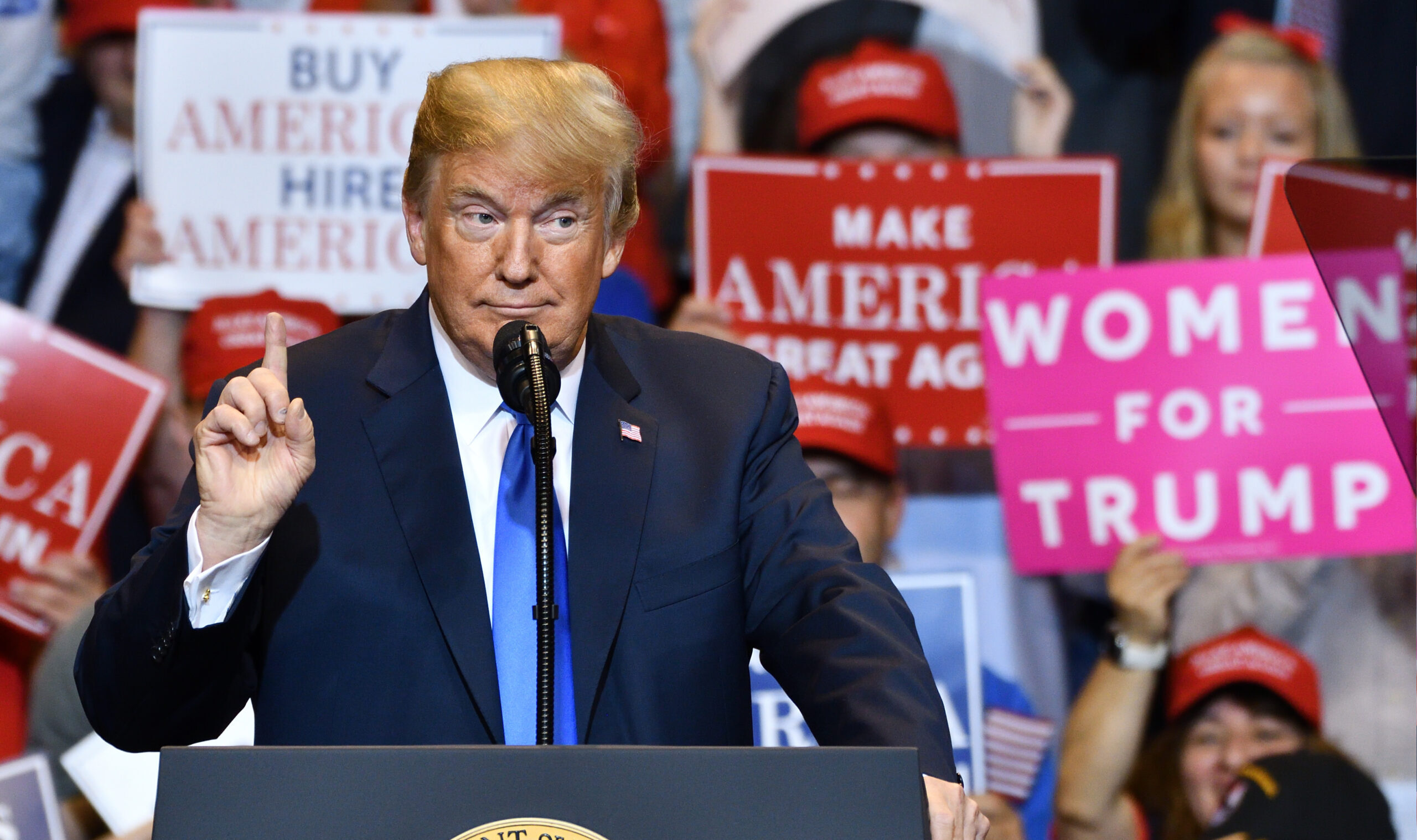Politics
Trump’s Lesson for Pro-Lifers
The rules of democracy require abortion opponents to embrace, for now, moderation like Donald Trump’s.

Donald Trump has done more for the pro-life cause than any other president. As promised, he appointed the Supreme Court Justices who overturned Roe v. Wade. Yet abortion opponents are unhappy with the former president, who recently declined to endorse a federal abortion ban. Mike Pence, who served as Trump’s vice-president, called the remarks a “slap in the face.” Lila Rose, the leader of anti-abortion group Live Action, concluded that “President Trump is not a pro-life candidate.”
This conflict reflects a longer-running tension between abortion opponents and the former president. Styling himself as a consummate deal-maker, Trump has a pragmatic way of talking about issues that other politicians discuss in more principled terms. He has repeatedly bragged that he “put the pro-life movement in a strong negotiating position” by appointing the justices who reversed Roe. As one abortion opponent put it, Trump’s message to pro-life Americans is, “I’ve given you leverage now to make a better deal.”
Grateful as pro-lifers are for Trump’s appointments, they find this way of speaking about abortion unsatisfying: A right to life shouldn’t be subject to negotiation. But Trump’s approach accords with what once would have been called democratic habits of mind. When a political debate is framed in terms of rights, the compromises that are natural to democratic life will appear illegitimate.
Trump’s raw rhetoric and deviation from the bipartisan consensus on trade, immigration, and foreign policy have led some to view him as an “extremist.” His refusal to concede defeat in the 2020 election, culminating in the events of Jan. 6, was taken by many to confirm recurring claims that he was a threat to democracy.
Such criticisms obscure the fact that Trump’s policy views on immigration and social issues resemble those of Clinton-era Democrats. His opposition to free trade and nation-building foreign policy, meanwhile, may be closer to the views of the median voter than are the views he rejects.
Even after his remarks on abortion, liberal journalists and anti-Trump Republicans remain reluctant to acknowledge him moderation. Some continued to paint him as an extremist—or at least the leader of an extremist coalition. “Trump and his allies will do everything in their power to ban abortion nationwide, with or without a Republican majority in Congress,” Jamelle Bouie wrote in The New York Times.
A more inventive response came from Bill Kristol, who cited Trump’s abortion moderation as proof that Trump is, yes, a fascist. “This is classic authoritarianism. (See Eco on Ur-Fascism).” Umberto Eco describes fascism as “a fuzzy totalitarianism, a collage of different philosophical and political ideas, a beehive of contradictions.” So Trump’s very moderation, his refusal to endorse federal restrictions on abortion, is a sign that he is advancing a nefarious ideology.
When it comes to contradictory political stances, Kristol knows whereof he speaks. The enthusiastic promoter of Sarah Palin and unrelenting critic of Donald Trump, the high-toned opponent of public recognition of homosexuality turned unapologetic advocate for LGBT rights, Kristol himself might be described as a beehive of contradictions.
If Trump’s abortion statement left his critics on the left casting about for a line of criticism, not always convincingly, it raised more serious questions for the right. When Roe v. Wade was in force, abortion opponents eagerly framed their cause in democratic terms. They decried “the judicial usurpation of politics,” as a famous symposium in First Things put it, and hoped that their preferred policies would one day be enacted by a “moral majority.”
This democratic vision of pro-life politics has been weakened by a number of developments. Declining religiosity and rising social liberalism have led many on the right to recognize that they constitute a moral minority—certainly one of the nation’s most important political blocs, one almost completely unrepresented in most elite institutions, but a minority nonetheless.
Subscribe Today
Get daily emails in your inbox
Meanwhile, the nation’s rapid embrace of gay rights seemed to teach some conservatives a non-democratic lesson in social change. Democratically enacted referenda were knocked down by courts, changing not only the law but—in conjunction with political leaders, business executives, and media properties—public attitudes. “The law is a teacher” became a refrain on certain parts of the right.
The reversal of Roe v. Wade would seem to be an opportunity for this non-democratic idea of social change. But as Darel Paul pointed out in Compact, counter-majoritarian political strategies will be difficult to pursue when the wealthiest and most educated classes—those best positioned to wield legal, economic, and cultural power on behalf of an unpopular view—are opposed.
In this context, Trump’s moderation may be the best the opponents of abortion can hope for. Ryan Williams, president of the Claremont Institute, defended Trump’s statement, saying, “The pro-life movement needs to take its bearings from Lincoln, not William Lloyd Garrison.” It is a wise remark. Lincoln’s statesmanship, not Garrison’s radicalism, led to the triumph of the anti-slavery cause. Lord Charnwood, Lincoln’s great biographer, observed that Lincoln’s approach to slavery involved “watching and waiting while blood flows, suspending judgment, temporizing, making trial of this expedient and of that.” Lincoln’s attitude toward slavery was less radical than Garrison’s; he succeeded by implementing “a policy of deadly moderation towards it.” A little deadly moderation may be just what the pro-life movement needs.
>>> Read full article>>>
Copyright for syndicated content belongs to the linked Source : The American Conservative – https://www.theamericanconservative.com/a-lesson-for-pro-lifers/